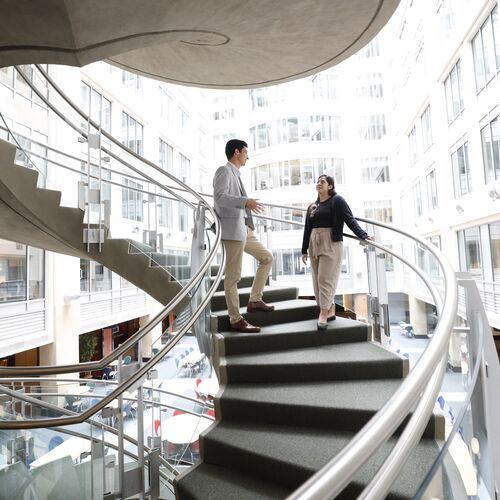Standing Committee on Advances and National Security Implications of Transdisciplinary Biotechnology
The life sciences are highly distributed, multi-disciplinary, and international, limiting the identification, adoption, and influence of national security-relevant biotechnologies. These limitations can be overcome through active engagement with industry, academia, other research institutions, and funders of biotechnology. This standing committee will facilitate active engagement between the national security community and a diverse group of biotechnology stakeholders from various sectors. The standing committee will work to identify advanced biotechnologies that have promising capabilities to meet national security needs, and to identify early-stage research that may lead to new or enhanced biotechnologies.
In progress
Description
The National Academies of Sciences, Engineering, and Medicine will establish a standing committee that will convene meetings and workshops as mechanisms to enable the national security community to identify advanced biotechnology capabilities of particular interest, discuss potential barriers or challenges to adoption, and build partnerships between the national security stakeholders and biotechnology experts across a variety of sectors and fields. Members will have opportunities to prepare white papers or other types of individually-authored papers and similar types of products toward this goal. This group will provide opportunities for ongoing discussion between national security officials, biotechnology experts, and funders from a variety of organizational sectors, scientific disciplines, and fields such as through workshops or meetings of experts. Specifically, the standing committee explores:
- The applicability of commercially available or advanced biotechnologies and life science research for addressing current or anticipated needs of different U.S. national security agencies.
- Practical or operational factors (e.g., workforce, infrastructure, policy/governance, and security considerations) needed to enable technology transition to agency use.
- Early-stage biotechnology and life science research that demonstrate promising scientific or technical capabilities for addressing national security needs.
- The innovation ecosystem needed to translate early-stage research into practical application.
Any related products from workshops or other activities would be developed by rapporteurs associated with separately approved, ad hoc planning committees for those activities. Written products will follow relevant National Academies’ review policies.

Contributors
Committee
Co-Chair
Co-Chair
Member
Member
Member
Member
Member
Member
Member
Member
Member
Member
Member
Member
Member
Member
Sponsors
National Security Commission on Emerging Biotechnology
US Government
Staff
Nia D. Johnson
Lead
Trisha Tucholski
Lead
Kavita Berger
Mariah Waul
Anthony Mann
Major units and sub-units
Center for Health, People, and Places
Lead
Life Sciences and Biotechnology Program Area
Lead
Discover
Events
Right Now & Next Up
Stay in the loop with can’t-miss sessions, live events, and activities happening over the next two days.
NAS Building Guided Tours Available!
Participate in a one-hour guided tour of the historic National Academy of Sciences building, highlighting its distinctive architecture, renowned artwork, and the intersection of art, science, and culture.